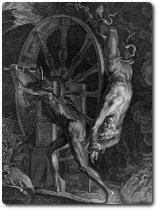King Lear Contents
- Social / political background
- Religious / philosophical background
- The Theatre
- Act I
- Act II
- Act III
- Act IV
- Act V
Act 4 Scene 7
Synopsis of Act 4 Scene 7
Kent has told Cordelia who he really is and a doctor asks for music to be played as Lear wakes up to find Cordelia comforting him. At first he mistakes her for a spirit and only gradually does he realise that he is still alive and not gone to heaven. He acknowledges that he is a ‘very foolish fond old man’ and, after recognising his daughter, he invites her to poison him, admitting that he has treated her unjustly. Cordelia protests that she has no reason to do such a thing. Lear asks her to forget and forgive because he is old and foolish. The Doctor says that the King needs more rest and he is taken indoors. This leaves Kent and the Gentleman alone and they discuss the coming battle. Kent prophesies that he will die that day.
Commentary on Act 4 Scene 7
There is an atmosphere of serenity in the scene and it begins with a conversation between Kent and Cordelia, both of whom embody goodness in the play. When Lear appears (briefly), his language has none of the bitterness it had in the previous scene. A natural order of morality and stability seems to be reasserting itself.
The untuned and jarring senses, O wind up: The metaphor derives from the way in which stringed instruments are tuned. The pegs are turned in order to tighten up (or loosen) the strings, thus restoring harmony.
Soft music: There is harmony in this scene not only metaphorically but also in the physical presence of stage musicians, whose music has a therapeutic effect as well as a dramatic significance, emphasising the play's climax.See Music.
these white flakes / Had challenged pity of them: The ‘white flakes’ are white hair. Lear’s pitiful old age should have been enough to ensure sympathy for him from anybody – let alone members of his own family.
Thou art a soul in bliss: Lear means that Cordelia seems to be like a spirit from heaven. It is as if he has already died and now is resurrected in order to contemplate the happiness of a heavenly spirit.
 Upon a wheel of fire: Lear is referring to one of the torments inflicted by the Greek gods (as a punishment for Ixion’s lust) which involved the victim being tied to a flaming wheel and turned round and round. He thinks he is being abused (deceived) because he is being allowed to see a heavenly spirit, despite apparently being in hell.
Upon a wheel of fire: Lear is referring to one of the torments inflicted by the Greek gods (as a punishment for Ixion’s lust) which involved the victim being tied to a flaming wheel and turned round and round. He thinks he is being abused (deceived) because he is being allowed to see a heavenly spirit, despite apparently being in hell.And yet it is danger / To make him even o’er the time he has lost: This seems to be a warning to Cordelia not to encourage her father to think back on all that he has suffered; if he does, his mind may become unbalanced again.
Investigating Act 4 Scene 7...
-
Cordelia uses animal imagery in this scene. What is its effect?
-
Why is Lear mistrustful of his senses when he wakes up?
-
Family bonds are smashed in this play. How does this scene begin to restore them?
-
What is the dramatic purpose of the Gentleman's failure to recognise Kent?
An image or form of comparison where one thing is said actually to be another - e.g. 'fleecy clouds'.
In many religions, the place where God dwells, and to which believers aspire after their death. Sometimes known as Paradise.
1. To raise someone from the dead. 2. To use again or bring to attention once more.
A god from Greek mythology.
Ixion ' the Greek Cain, the first man to shed human blood.